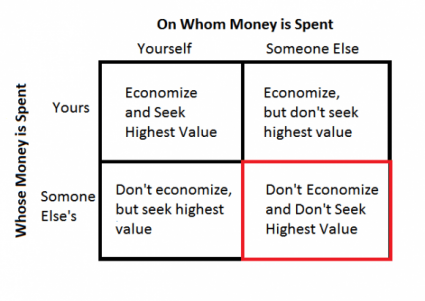This is the 40th installment of Lighthouse, my monthly column for BLink, a supplement of the Hindu Business Line.
Women are treated as the property of men in India. This is not merely reflected in our culture, but is enshrined in our laws.
Early last year, a 13-year-old girl was raped in Bareilly in Uttar Pradesh. In October, she gave birth to a child. A month ago, she married her rapist. Or rather, she was married off to her rapist. Village elders intervened and felt that to be the honourable course of action.
This is not new, and this anecdote will soon be statistic. Rape victims have been married off to their rapists before. The thinking behind this: now that the girl is ‘damaged goods’, no one will marry her, so why not let the onus fall upon the man who ‘damaged’ her. It’s almost as if a man walks into a shop and breaks a vase, and is then forced to buy it. Who else will buy the vase?
The key word in the paragraph above is not ‘damaged’ but ‘goods’. In India, women are treated as the property of men. It is not only backward villages in the hinterland where this attitude exists – it is enshrined in our laws. I ask you to consider Section 497 of the Indian Penal Code:
497. Adultery
Whoever has sexual intercourse with a person who is and whom he knows or has reason to believe to be the wife of another man, without the consent or connivance of that man, such sexual intercourse not amounting to the offence of rape, is guilty of the offence of adultery, and shall be punished with imprisonment of either description for a term which may extend to five years, or with fine, or with both. In such case the wife shall be punishable as an abettor.
The italics are mine. Consider the words without the consent or connivance of that man. As if a woman’s husband is her owner, and you are wronging him by sleeping with her – even if she consents, which would be a crime on her part.
Now take a look at another law from the IPC:
498. Enticing or taking away or detaining with criminal intent a married woman
Whoever takes or entices away any woman who is and whom he knows or has reason to believe to be the wife of any other man, from that man, or from any person having the care of her on behalf of that man, with intent that she may have illicit intercourse with any person, or conceals or detains with that intent any such woman, shall be punished with imprisonment of either description for a term which may extend to two years, or with fine, or with both.
Again, the woman’s consent doesn’t matter, as per this law. Two consenting adults could have sex, and it would qualify as a crime on the woman’s husband. (And not the man’s wife, mind you, showing that it is not marriage that is the issue here but gender.)
This misogyny is common in our laws, but you could argue that the IPC is a colonial relic from Victorian times. We Indians treat our women well. Nonsense. Treating women as property is an old Indian tradition, and finds reflection in our epics. In the Mahabharata, for example, Yudhishthir gambles Draupadi away, as if she is not an autonomous human being but his possession. Read up on the way Kunti, Amba, Gandhari and Madri were treated, and you will see that their fates were never in their own hands. (I recommend reading Irawati Karve’s Yuganta for her brilliant analysis of how the Mahabharata treated women.) And don’t get me started on the Ramayana, and Ram’s treatment of Sita.
This attitude percolates down to modern-day India. Reports on rapes will often mention the marital status of the woman, especially if she was a newlywed. (Do a Google search for “housewife raped.”) This carries the implication that the crime is more serious than if she was single, because it is also a crime against the man she was married to.
This is not an attitude only villagers have. A few years ago, the cultured, well-to-do (and repugnant) Tarun Tejpal, in an email to the woman he was alleged to have raped, offered to apologise to her boyfriend. Why? If he had committed a crime against her, why on earth should be apologise to her boyfriend? What kind of patriarchal nonsense was that? (Perpetuating patriarchy and purple prose are the least of the notorious Tejpal’s sins, of course.)
And just look at Bollywood. The Bollywood hero is the perfect archetype for the entitled Indian male. Most Bollywood wooing is basically sexual harassment. You could argue about whether popular culture reflects society or shapes it, but they amount to the same thing.
This dehumanising of women – as a means to satisfy various male urges – might account for our skewed sex ratios. If girls are looked upon as a liability, no wonder the rates of female foeticide are so high. At one level, there is even a perverse rationale to this: why give birth to a girl child in one of the most misogynist countries in the world?
There has been much posturing from our governments – not just the current one – about how much they care for our women. I call it Patriarchal Paternalism. #SelfieWithDaughter is just optics, and all the Beti Bachao Beti Padhao Yojanas of the world will amount to just talk unless things change at a fundamental level. Social change does take time, and will not happen overnight. But the government could make a start by changing some of our ludicrous, outdated laws, like the ones mentioned earlier in this piece. Do you think that will happen?
